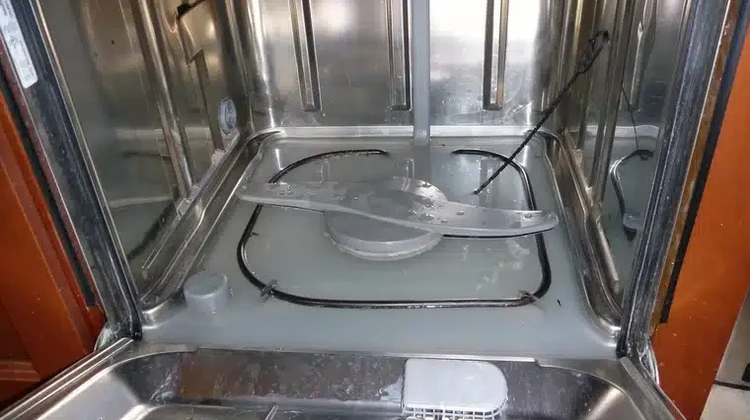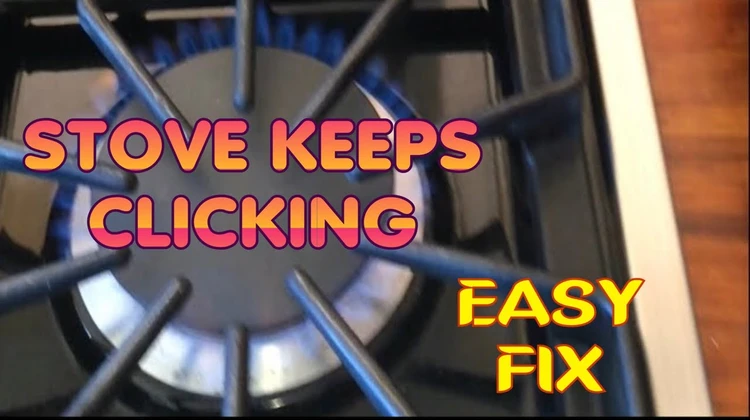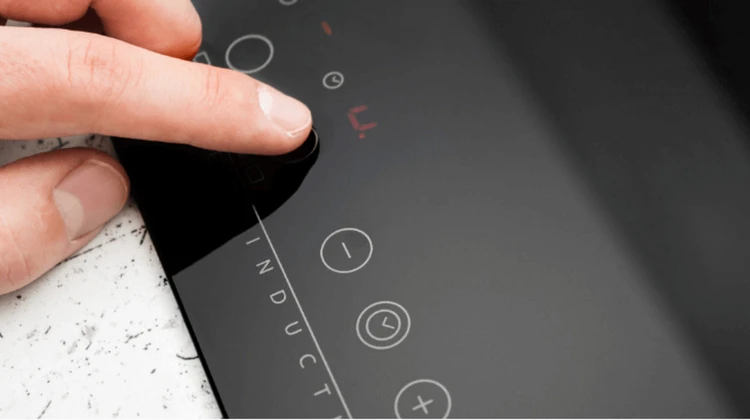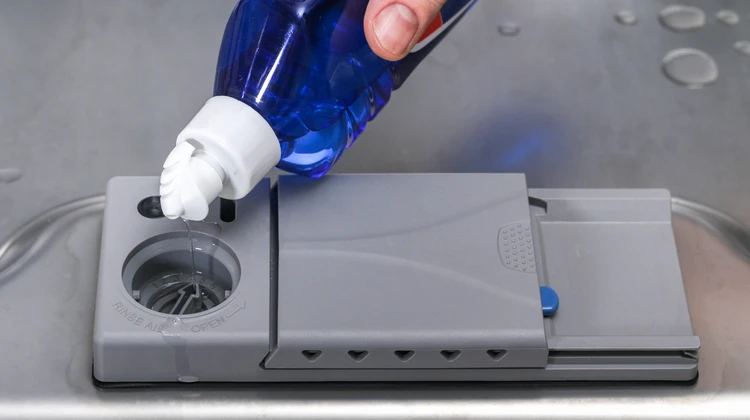Standing water in your dishwasher can be a frustrating and unsanitary issue for any homeowner, renter, or kitchen enthusiast. This common problem can significantly disrupt kitchen efficiency and hygiene, making it crucial to address promptly. According to a survey by HomeServe, one in five households experience dishwasher issues annually, highlighting the widespread nature of this problem.
Disclaimer: As an Amazon Associate, I earn commission from qualifying purchases.
With over a decade of experience in kitchen appliance maintenance, I can assure you that prompt action is essential. As referenced in Better Homes and Gardens, neglecting dishwasher issues can lead to more significant problems, including mold growth and potential flooding. Therefore, it’s vital to understand the root causes and solutions. Always remember, for complex issues, seeking professional help is advisable.
Common Causes of Standing Water in Dishwashers
Several factors can lead to standing water in dishwashers. Here are the most common causes:
- Clogged Filters: The filter at the bottom of the dishwasher can become clogged with food particles, preventing water from draining properly.
- Malfunctioning Pumps: The drain pump might fail, leading to water accumulation.
- Improper Drainage: Issues with the drain hose, such as kinks or blockages, can cause standing water.
- Faulty Garbage Disposal: If connected to the dishwasher, a malfunctioning garbage disposal can block the drainage path.
- Electrical Issues: Faulty wiring or electrical components can disrupt the dishwasher’s drainage system.
According to Consumer Reports, clogged filters and malfunctioning pumps are among the top reasons for dishwasher repair calls. Understanding these common and rare causes can help you diagnose and address the issue more effectively.
Identifying the Source of the Problem
To diagnose the issue, follow these steps:
- Check the Filter: Locate the filter at the bottom of the dishwasher and inspect it for any visible debris or blockages.
- Inspect the Drain Hose: Examine the hose for kinks, twists, or blockages. Ensure it is properly connected and not obstructed.
- Examine the Pump: Listen for unusual noises or check for any visible signs of damage or malfunction.
Tools needed for diagnosis include a flashlight, screwdriver, and possibly a multimeter for electrical checks. Industry publications like Appliance Magazine recommend regular inspections to catch issues early. Each step’s complexity varies, so approach with caution and seek professional help if needed.
Cleaning the Dishwasher Filter
Cleaning the dishwasher filter is a straightforward process:
- Remove the Filter: Typically located at the bottom of the dishwasher, the filter can be easily removed by twisting and lifting it out.
- Clean the Filter: Rinse the filter under hot water to remove any debris. Use a soft brush to scrub away stubborn particles.
- Reinstall the Filter: Place the filter back into the dishwasher, ensuring it is securely in place.
Experienced plumbers recommend cleaning the filter every 3-6 months. Official manuals from dishwasher manufacturers like Bosch provide detailed instructions for this process. Always prioritize safety when handling dishwasher parts.
Checking and Clearing the Drain Hose
To check and clear the drain hose, follow these steps:
- Locate the Drain Hose: Usually found under the sink or behind the dishwasher, the hose connects the dishwasher to the drain.
- Inspect for Blockages: Check the hose for any visible kinks, twists, or blockages.
- Clear the Hose: Use a snake tool or high-pressure water to clear any obstructions. Ensure the hose is properly reconnected afterward.
Professionals often use specific techniques, such as using a drain snake or high-pressure water, to clear the hose effectively. Academic studies on effective drain cleaning methods, like those published in the Journal of Applied Plumbing, highlight the importance of regular maintenance. Transparent pricing information for tools, if applicable, can be found in home improvement stores or online retailers.
Inspecting the Dishwasher Pump
The dishwasher pump plays a critical role in draining water. To inspect it:
- Listen for Unusual Noises: Pay attention to any strange sounds coming from the pump, which could indicate a malfunction.
- Check for Visible Damage: Inspect the pump for any visible signs of wear or damage.
- Test the Pump: Run a cycle and observe if the pump is functioning correctly.
Detailed explanations of pump mechanics can be found in reputable home improvement blogs like This Old House. It’s important to note that pump repairs can be complex, so consider seeking professional help. Ensure the dishwasher is unplugged before inspecting the pump to avoid electrical hazards.
Troubleshooting Common Electrical Issues
Electrical issues can also cause standing water. Here are some common problems and solutions:
- Faulty Wiring: Check for any loose or damaged wires that might be affecting the dishwasher’s drainage system.
- Malfunctioning Control Board: The control board regulates the dishwasher’s functions. A faulty board can disrupt the drainage process.
- Defective Sensors: Sensors that detect water levels can malfunction, leading to standing water.
Electrical safety guidelines, as outlined by the National Electrical Code, should be followed when handling electrical components. While some issues can be addressed with DIY solutions, professional repairs are often necessary for complex electrical problems. Balance DIY efforts with the expertise of a professional to ensure safety and effectiveness.
The Role of Dishwasher Detergent
The type of detergent used can significantly affect dishwasher performance and drainage. Here’s how:
- High-Sudsing Detergents: These can create excessive foam, leading to drainage issues.
- Low-Quality Detergents: Ineffective detergents can leave residue, causing blockages over time.
- Hard Water Deposits: Certain detergents may not effectively dissolve in hard water, leading to mineral buildup.
Studies on detergent effectiveness, such as those published in the Journal of Consumer Research, highlight the importance of choosing the right detergent. Offer a balanced perspective on different detergent brands, considering factors like eco-friendliness and cleaning power.
Best Practices for Dishwasher Maintenance
Maintaining your dishwasher can prevent standing water and other issues. Here are some best practices:
- Regular Cleaning: Clean the dishwasher interior and filter regularly to remove food particles and mineral deposits.
- Proper Loading: Ensure dishes are loaded correctly to allow water to circulate freely.
- Use the Right Detergent: Choose a detergent suitable for your water type and dishwasher model.
- Run Hot Water Before Starting: Running hot water through the sink before starting the dishwasher can help clear the drain line.
Well-known home improvement websites like HouseLogic recommend these practices to extend the lifespan of your dishwasher. Regular maintenance is crucial for preventing issues and ensuring optimal performance.
Product Recommendations for Dishwasher Care
Several products can help maintain dishwasher efficiency:
- Cleaning Tablets: These tablets are designed to deep clean the dishwasher, removing odors and residue.
- Descaling Agents: Useful in areas with hard water, descaling agents help remove mineral deposits.
- Rinse Aids: These products improve water drainage and reduce spotting on dishes.
Reputable product review websites like Wirecutter provide detailed reviews of these products. Transparent pricing information and a balanced perspective on different products can help you make informed decisions.
When to Call a Professional
Sometimes, DIY solutions are not enough, and professional help is needed. Here are some signs:
- Persistent Standing Water: If the water doesn’t drain despite your efforts, it’s time to call a professional.
- Unusual Noises: Strange sounds from the dishwasher can indicate a more serious issue.
- Electrical Problems: If you suspect an electrical issue, it’s best to leave it to the experts.
Industry standards for professional repairs, as outlined by the Association of Home Appliance Manufacturers, ensure quality and safety. Always prioritize professional help for complex issues to avoid further damage.
DIY vs. Professional Repairs: A Cost-Benefit Analysis
When deciding between DIY and professional repairs, consider the following:
- Cost of DIY Repairs: DIY solutions can be cost-effective but may require purchasing tools and parts.
- Cost of Professional Repairs: While more expensive, professional repairs ensure the job is done correctly and safely.
- Time and Expertise: DIY repairs can be time-consuming and require a certain level of expertise.
Financial planning resources, such as those provided by Mint, can help you weigh the costs and benefits. A balanced perspective on both options ensures you make the best decision for your situation.
Frequently Asked Questions (FAQs)
How often should I clean my dishwasher filter
Experts recommend cleaning the dishwasher filter every 3-6 months to prevent clogs and ensure optimal performance. Regular cleaning helps maintain the dishwasher’s efficiency and hygiene.
What are the signs of a malfunctioning dishwasher pump?
Signs of a malfunctioning dishwasher pump include unusual noises, water not draining properly, and visible damage to the pump. If you notice any of these signs, it’s important to inspect the pump or seek professional help.
Can using the wrong detergent cause standing water?
Yes, using the wrong detergent can cause standing water. High-sudsing detergents or low-quality products can lead to excessive foam or residue, blocking the drainage system. Choosing the right detergent is crucial for optimal performance.
How do I know if my drain hose is clogged?
If your drain hose is clogged, you may notice water backing up into the dishwasher, slow draining, or unusual noises. Inspect the hose for kinks, twists, or visible blockages to determine if it’s clogged.
Is it safe to attempt electrical repairs on my dishwasher?
Attempting electrical repairs on your dishwasher can be dangerous if you’re not familiar with electrical systems. It’s best to leave electrical repairs to professionals to ensure safety and avoid further damage. Always follow electrical safety guidelines when handling electrical components.
What is the best way to descale my dishwasher?
The best way to descale your dishwasher is to use a descaling agent designed for this purpose. Follow the manufacturer’s instructions for application and frequency. Regular descaling helps remove mineral deposits and maintains the dishwasher’s efficiency.
Conclusion
Addressing standing water in your dishwasher promptly is crucial for maintaining kitchen efficiency and hygiene. By understanding the common causes, identifying the source of the problem, and following best practices for maintenance, you can keep your dishwasher running smoothly.
Remember, for complex issues, seeking professional help is always the best course of action. With over a decade of experience in kitchen appliance maintenance, I can assure you that regular care and prompt action will extend the lifespan of your dishwasher and prevent costly repairs.







